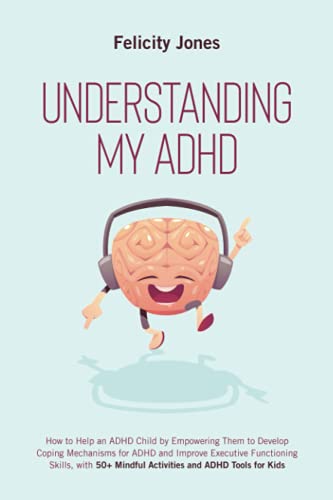We’ve all been there—feeling overwhelmed and reaching for a snack to cope. But have you ever stopped to think about how those snacks might actually affect your stress levels? It’s fascinating how our food choices can influence our mood and overall well-being.
In this article, I’ll explore the connection between what we eat and how we feel. From comfort foods to healthier options, the type of snacks we choose can either soothe our stress or send it soaring. Join me as we dive into the science behind snacks and stress, and discover how to make mindful choices that nourish both our bodies and minds.
Understanding Stress and Its Effects
Stress arises from various triggers, including work, relationships, and daily challenges. When stress occurs, the body releases hormones like cortisol and adrenaline. These hormones prepare the body for a “fight or flight” response, which can lead to increased heart rate and heightened awareness. Chronic stress can lead to long-term health issues like anxiety, depression, and cardiovascular problems.
Stress impacts mental clarity and physical health. Stress affects digestion, sleep, and immune function. Both emotional and physical responses to stress lead to cravings for high-sugar and high-fat snacks. These comfort foods may provide temporary relief, but they often exacerbate stress in the long run.
Managing stress through healthy snacking can improve overall well-being. Healthy snacks, rich in vitamins and minerals, help regulate mood and energy levels. Incorporating snacks such as fruits, nuts, and whole grains can counteract the negative effects of stress. These choices not only satisfy cravings but also nourish the body with essential nutrients.
The Role of Nutrition in Stress Management
Nutrition plays a vital role in managing stress levels. The foods I choose to include in my diet significantly impact my mood and overall well-being. Understanding the relationship between nutrition and stress can empower you to make smarter snacking decisions that promote mental clarity and emotional balance.
Macronutrients and Stress
Macronutrients—carbohydrates, proteins, and fats—have distinct effects on stress management. Carbohydrates, for instance, boost serotonin production, a neurotransmitter that stabilizes mood. Choosing complex carbohydrates, like whole grains and legumes, provides sustained energy and helps prevent stress-induced fatigue.
Proteins supply amino acids, essential for producing neurotransmitters that regulate mood. Snacks high in protein, such as Greek yogurt or roasted chickpeas, can enhance feelings of stability and increase resilience against stress. Healthy fats, found in nuts and seeds, offer anti-inflammatory properties that help combat stress and anxiety. Incorporating a mix of these macronutrients into your snack choices creates a well-rounded approach to stress relief.
Micronutrients and Stress
Micronutrients, including vitamins and minerals, play an equally important role in stress management. Vitamin C, found in fruits like oranges and strawberries, reduces cortisol levels, the hormone associated with stress. Incorporating these fruits into your snacks can provide a refreshing boost to your mood.
B vitamins, especially B6, B9, and B12, contribute to brain health and emotional stability. Foods rich in these vitamins, such as leafy greens, nuts, and whole grains, support neurotransmitter function. Magnesium, present in dark chocolate and avocados, also helps manage stress by promoting relaxation and regulating cortisol levels.
By choosing a variety of nutrient-rich snacks, I enhance my body’s ability to cope with stress. Whether I’m reaching for a handful of almonds or a delicious smoothie packed with fruits and greens, I’m mindful of how these nutrients support my mental well-being and help me stay balanced in today’s fast-paced world.
How Snacks Impact Stress Levels
Snacks play a significant role in managing stress levels. The right snacks can uplift your mood and provide essential nutrients that your body craves during challenging times. Understanding how specific snacks can either alleviate or exacerbate stress can empower you to make better choices.
Types of Snacks to Consider
- Fruits: Berries, bananas, and citrus fruits provide natural sugars and vitamins that support brain health. They’re packed with antioxidants that combat oxidative stress.
- Nuts: Almonds, walnuts, and pistachios contain healthy fats, protein, and magnesium. They help stabilize blood sugar levels, leading to sustained energy and reduced anxiety.
- Whole Grains: Oatmeal and whole-grain crackers offer complex carbohydrates. They promote serotonin production, enhancing mood and calmness.
- Yogurt: Rich in probiotics, yogurt supports gut health, which is linked to mental health. A healthy gut can aid in reducing anxiety levels.
Nutritional Value and Stress Relief
Nutrient-rich snacks significantly contribute to stress relief. These options contain crucial macronutrients and micronutrients that can transform your mood:
- Complex Carbohydrates: Foods like whole grains help maintain serotonin levels, boosting happiness and emotional stability.
- Protein: Eggs, lean meats, and legumes provide amino acids, essential for producing neurotransmitters that regulate mood.
- Healthy Fats: Avocados and fatty fish contain omega-3 fatty acids, known for their anti-inflammatory properties that combat stress.
- Vitamins and Minerals: Magnesium, found in leafy greens and nuts, and vitamin C from fruits like oranges can reduce cortisol levels and enhance overall mental well-being.
Incorporating these healthy snacks into your daily routine creates a balanced approach to managing stress and promoting long-term wellness. Each choice offers a delicious opportunity to nourish both body and mind.
Psychological Aspects of Snacking
Snacking influences stress levels in various psychological ways. Snacking can evoke positive memories or comfort, especially with familiar foods. The act of preparing or enjoying a favorite healthy snack, like a homemade nut butter or fruit smoothie, brings joy and reduces anxiety.
Snacks rich in nutrients affect brain chemistry. Healthy snacks, such as fruits and nuts, can uplift mood. For example, bananas provide vitamin B6, promoting serotonin synthesis. When I create snacks filled with ingredients that nourish the body, I see how they boost mental clarity and enhance emotional well-being.
Mindful eating plays a vital role in stress management. Engaging fully in the snacking process—from selecting ingredients to savoring each bite—encourages a calmer mind. I often find that my stress diminishes when I focus on preparing a colorful platter of fresh vegetables and hummus.
Social connections enhance the snacking experience. Sharing healthy snacks with friends or family builds relationships and reduces feelings of isolation. For instance, hosting a healthy snack party allows for collaborative creativity in trying new recipes while fostering a supportive environment that alleviates stress.
Creating a personalized snacking strategy enhances stress reduction. Incorporating snacks that align with your preferences and nutritional needs can help establish a routine. Whether it’s my crunchy chickpeas or energy balls, knowing that I’m nourishing my body contributes to a more balanced emotional state.
Conclusion
Finding the right snacks can really make a difference when it comes to managing stress. I’ve learned that choosing nutrient-rich options not only boosts my mood but also supports my overall well-being. It’s amazing how something as simple as a handful of nuts or a piece of fruit can help me feel more balanced.
Mindful eating has become a game changer for me. Taking the time to savor each bite not only enhances the experience but also helps me reconnect with my body’s needs. Plus, sharing snacks with friends or family adds a wonderful social element that lightens the mood.
Incorporating these healthy snacks into my routine has been a rewarding journey. I encourage you to explore what works for you and enjoy the positive impact it can have on your stress levels.












